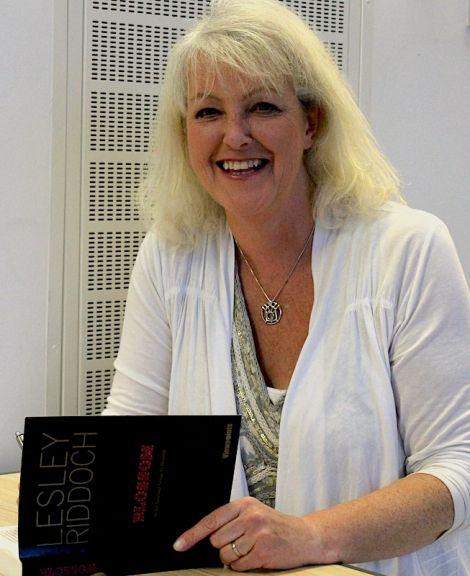Scottish Independence Debate / A weird country with the potential to blossom
A POWERFUL and passionate plea to turn around Scotland’s destiny was made in the Shetland Museum and Archives on Tuesday evening.
Around 90 people listened to award winning journalist Lesley Riddoch as she made the case for more local democracy and a fairer society in which people could reach their full potential.
Accepting an invitation from local journalist Louise Thomason, Riddoch was in Shetland on Tuesday to promote her book Blossom: What Scotland Needs To Flourish.
Written before the September independence referendum was announced, the book strongly argues for radical change in the way the country is run to enable Scotland to benefit from its “biggest resource: its people”.
In a 90 minute talk she branded Scotland’s “inaccessible landownership”, its inequality, lack of local democracy and widespread macho attitudes as the main reasons why Scotland continued to be the sick man of Europe.
Contrasting this with examples from her 30 years of campaigning journalism she shared inspiring tales of how people succeeded against all the odds, be it the Eigg community buy out or the West Whitlawburn Housing Cooperative.
And, comparing Scotland with its Scandinavian neighbours, it was becoming clear that Scotland and its people with their “fear of stepping out of line” and “learned silence” had been held back for centuries, she said.
“What we have to understand is that we are weird. In many respects Scotland is a weird country,” she said
Speaking afterwards she said: “I choose the idea of ‘blossom’ because I think there is an analogy here in that there are a lot of buds in Scotland but they are not quite blossoming.
“What we keep discussing are the tools in the garden shed, and not the big structural things like the kind of soil and whether there is enough shelter.”
Having been written before the referendum came along, Blossom is not about making the case for voting Yes in the forthcoming poll.
Become a member of Shetland News
She said her research had shown that federal countries were economically more successful, had a fairer and more equal society and far greater democratic participation.
Quizzed afterwards, she conceded that in her view it was now too late for federalism in the UK and only Scottish independence would do.
“There would have been a stage where it had made sense to have a federal United Kingdom. We have been trying to argue for that in Scotland for most of my lifetime and no one is paying the blindest bit of attention.
“So here we are, as sexy as we’re ever gonna get; Scotland is now at the utmost of its powers of attraction as an issue.
“I think now the best thing for Scotland to do is definitely to go its own way and become the nation it always has been trying to be.
“I have now heard Scots talking about fairness, equality and so on for long enough. We have been trying to vote for something, and now we have to own up to the fact that we want a different kind of democracy, and I can’t see any reasonable person thinking that’s available through Westminster in my lifetime,” she said.
Astonished and encouraged by the level grassroots organisation triggered by the Scottish independence referendum, she said people were starting to engage in debating how they want to be governed.
“Meetings like this that are a little bit more inclusive and where you actually can criticise the SNP or say that you are worried about the same old bosses taking over, are creating full houses all over Scotland.
“On the mainland of Scotland there is an awful lot of activism and a lot of activism beginning to break out not just about the constitution but about just everything in Scotland,” she said.
The event was financially supported by Shetland Arts. Blossom: What Scotland Needs To Flourish is published by Luath Press, Edinburgh.
Become a member of Shetland News
Shetland News is asking its many readers to consider paying for membership to get additional features and services: -
- Remove non-local ads;
- Bookmark posts to read later;
- Exclusive curated weekly newsletter;
- Hide membership messages;
- Comments open for discussion.
If you appreciate what we do and feel strongly about impartial local journalism, then please become a member of Shetland News by either making a single payment, or setting up a monthly, quarterly or yearly subscription.

























































